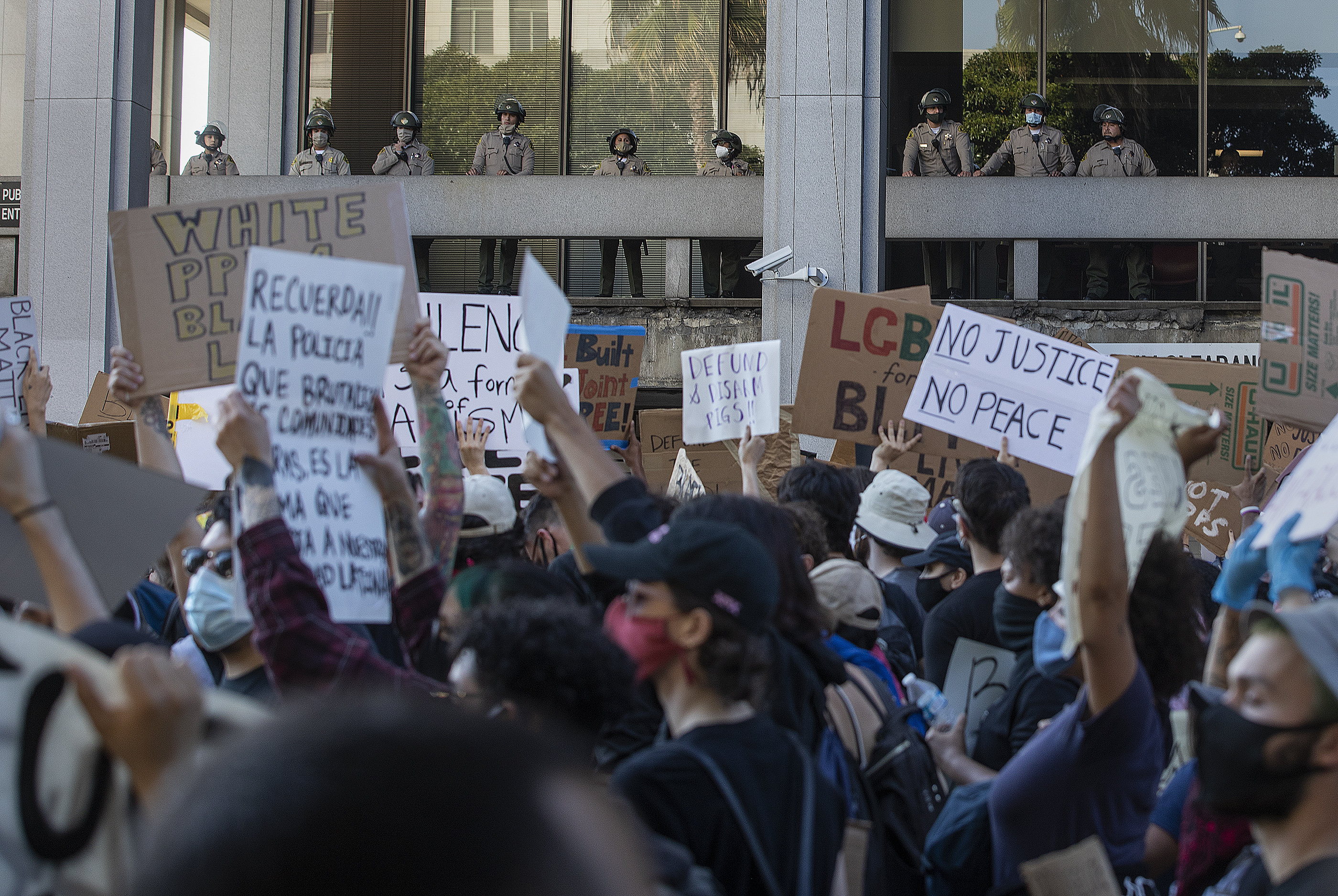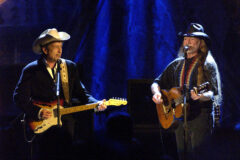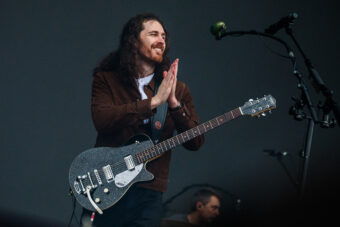Kendrick Lamar, “Alright”
Widely regarded as the anthem for the Black Lives Matter movement, the most well-known song on the astonishing To Pimp a Butterfly found inspiration from a trip to South Africa, Alice Walker’s The Color Purple, and, of course, Lamar’s own experience growing up in Compton. The song even opens with the artist screaming in anguish before lamenting the questions that generations of oppressed people have asked before him: “When our pride was low / Lookin’ at the world like, ‘Where do we go?’”
The song inspired strong emotions on both sides of the fight. After Lamar performed the tune at the BET awards, Fox News gasbag Geraldo Rivera proclaimed that “hip-hop has done more damage to African-Americans than racism in recent years.” Because we all remember that hip-hop song choking out an unarmed citizen.
Body Count, “Cop Killer”
The most notorious song on the self-titled debut album of Ice-T’s heavy metal side project was a scorched-earth revenge-porn response to the acquittal of the officers involved in the beating of Rodney King. To say that this tune attracted some controversy is like stating the Hindenburg was an uncomfortable flight.
Censorship enthusiast Tipper Gore made it her personal mission to get the song removed from airwaves. She succeeded, sort of. Ice-T recalled the album and removed the song, opting instead to give it away for free. The irony of ironies is that nearly a decade later, Ice-T has become arguably more well-known playing a cop himself as Detective Fin Tutuola on the long-running NBC series Law & Order: Special Victims Unit.
Sam Cooke, “A Change is Gonna Come”
Inspired by an unfortunate ordeal at a whites-only motel, Sam Cooke’s breathtaking plea for civil unity is still the high-water mark for protest music. As the story goes, Cooke, his wife, and various members of his band were en route to Shreveport, Louisiana when they decided to stay the night at a Holiday Inn. Despite having reservations, the clerk denied their access to the hotel. Leaving in a huff, Cooke and his entourage drove to another motel, only to find the local police waiting for them, arresting them for disturbing the peace. Channeling his disbelief that a man could be denied shelter based off of the color of his skin, Cooke wrote lyrics that perfectly intertwined the personal and the political.
At the behest of his manager, Cooke first performed the song on The Tonight Show with Johnny Carson in February of 1964. What should have been a watershed moment in music was overshadowed by the Beatles appearance on The Ed Sullivan Show just two days later. Cooke never performed the song live again, claiming that the melody “sounded like death.” And tragically, Cooke was shot and killed at a Los Angeles motel two weeks before the single was even released.
Public Enemy, “Fight the Power”
Commissioned by Spike Lee, who needed a theme song for his own rally-cry Do the Right Thing, Chuck D, borrowing the title from the Isley Brothers, wrote the song while on tour in Italy. Remember, Joyce wrote about life in Dublin while sitting in Parisian cafes.
Brought to life through numerous manipulated samples by the Bomb Squad, Chuck D’s lyrics take on the grandiose qualities of a revolutionary leader, pop music as a call to arms. Most shocking and most famous was his takedown of two of white American legends, specifically the King & Duke: “Elvis was a hero to most / But he never meant shit to me / Straight up racist, the sucker was / Simple and plain” with hypeman Flavor Flav adding, “Motherfuck him and John Wayne!”
Both the movie and the song were huge hits, helping to shine a light on the numerous problems plaguing the nation, including both the AIDS and crack epidemics, as well as the institutional racism that we still see in action today, proving that the fight is far from over.
Bob Dylan, “Hurricane”
On June 17, 1966, just after last call, two men entered the Lafayette Bar in Paterson, New Jersey and shot up the place. Two men were killed immediately; another died a month later. There was one survivor, despite suffering a head wound that would cost him an eye. Ten minutes later, police stopped a rental car with Rubin “Hurricane” Carter, a promising middleweight boxer, and his friend John Artis inside.
Recorded with the Rolling Thunder tour crew for Dylan’s 1976 album Desire, the album’s eight-and-a-half minute centerpiece is a blistering denouncement of racial profiling, filled out by the spectral sounds of Scarlet Rivera’s violin. Dylan’s vocal cords stretched to their breaking point.
The song brought Carter’s case to a national audience in the ’70s, but it took until 1985 for Federal Judge H. Lee Sarokin to rule that Carter had not received a fair trial and overturn the conviction. Over 50 years later, America is still dealing with an imperfect justice system; how many more wrongfully convicted people, particularly people of color, don’t receive a mea culpa in the form of a song about them.





